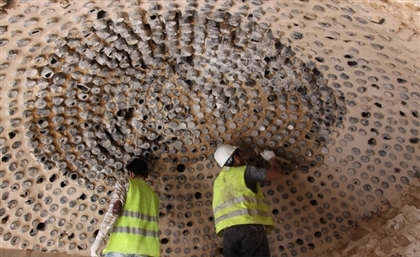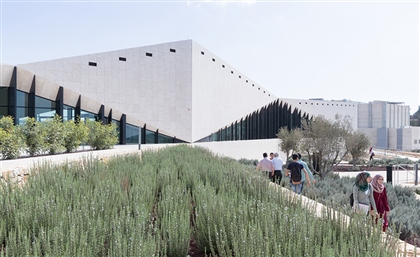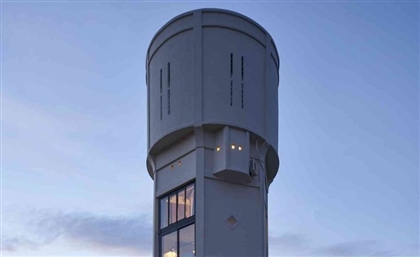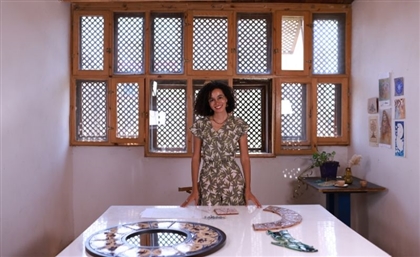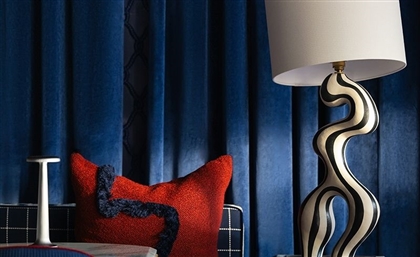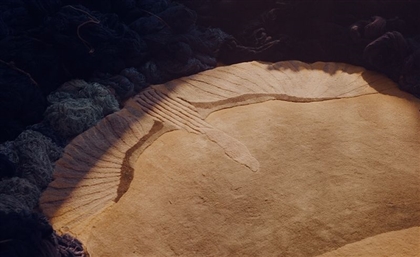RIWAQ Wins Holcim Award for Reviving Qalandiya’s Historic Centre
The RIWAQ Centre’s revitalisation of Qalandiya’s historic centre was the sole project from the Middle East recognized among 20 global winners of the 2025 Holcim Foundation Awards.
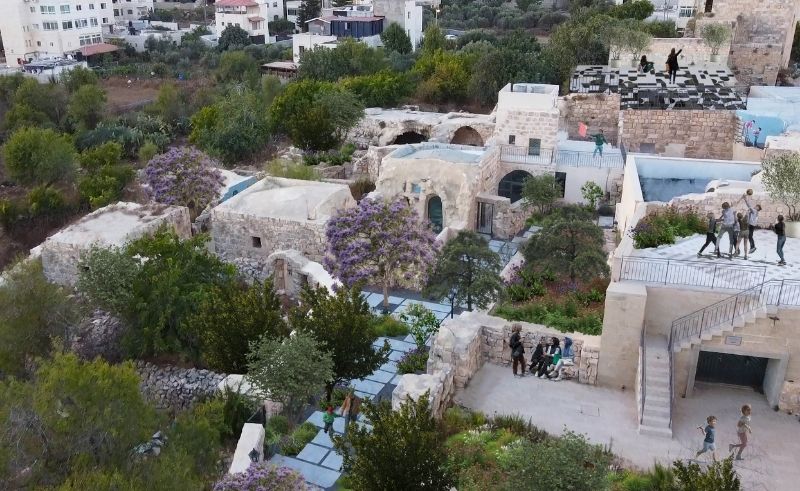
Palestine’s RIWAQ Centre for Architectural Conservation won a 2025 Holcim Foundation Award for their rehabilitation project in Qalandiya titled ‘The Green Historic Maze’.
In their 8th edition, the Holcim Foundation honoured 20 projects across five regions, including the Middle East and Africa, with a prize pool of USD 1 million. The award celebrates and financially supports sustainable design and construction that maintains architectural excellence. Founded in 2003, the organisation believes that we must transform the way we build, and look for low-carbon, innovative solutions to protect our environment, humanity, and collective future.
The Holcim Foundation has recognised a number of regional ventures in past iterations. In the last award cycle in 2023, Middle East winners included the southern Lebanese ‘Kfar Houneh Ecolodge’ and the ‘Ezbet Eshaq’s Eco Classroom’ in the Egyptian governorate of Faiyum.
This year, RIWAQ’s project to develop the historic centre of Qalandiya in the West Bank was the only winner from the Middle East. The Ramallah-based organisation has been preserving, restoring, and documenting architectural heritage sites across the West Bank, Jerusalem and Gaza for over 30 years. Beginning in 2017, Qalandiya’s historic centre is part of RIWAQ’s ongoing ‘Life Jacket Project’ that resists the marginalisation of Jerusalem’s rural villages from each other and from the Holy City—including the villages of Qalandiya, Kafr ‘Aqab, Al-Jib and Beit Hanina.
-3552ea7d-2aad-41cb-891e-59fd8e67493e.jpg) RIWAQ’s winning project contests Israeli occupation by imagining, and building, an interconnected Palestine. ‘Life Jacket’ treats rural Jerusalem as “one cluster” instead of “a group of single villages,” RIWAQ writes. RIWAQ aims to reconnect these villages by rehabilitating their historic centres, and revitalising their social networks, cultural activities, and local economies.
Lead architect of the ‘Life Jacket Project’, RIWAQ’s Aya Tahhan, said that this honour highlights their ongoing efforts to safeguard and revive Palestinian cultural heritage, particularly in the fragile rural areas surrounding Jerusalem.
RIWAQ’s winning project contests Israeli occupation by imagining, and building, an interconnected Palestine. ‘Life Jacket’ treats rural Jerusalem as “one cluster” instead of “a group of single villages,” RIWAQ writes. RIWAQ aims to reconnect these villages by rehabilitating their historic centres, and revitalising their social networks, cultural activities, and local economies.
Lead architect of the ‘Life Jacket Project’, RIWAQ’s Aya Tahhan, said that this honour highlights their ongoing efforts to safeguard and revive Palestinian cultural heritage, particularly in the fragile rural areas surrounding Jerusalem.
-ac111bb7-b9a7-4266-adf7-d830a17e66ed.jpg) “Winning the Holcim Award recognises our creativity, resilience, and dedication as Palestinians,” she says. “Through our work, we convey continuity, hope, and a sense of belonging, sharing our narrative with the world.”
RIWAQ operates under the reality of military occupation, where Israeli policies cut villages inside of the West Bank off from each other, and also sever the West Bank from Jerusalem and the 48 occupied territories as a whole. Within the West Bank, a key mechanism of Israel’s apartheid system is the fragmentation of Palestinian lands and people through arbitrary administrative impediments, settlement expansion, and the continuous construction of physical barriers like checkpoints, walls, and fences. In 2024, the United Nations described the West Bank under the Israeli “matrix of control” as “an archipelago of scattered, disconnected islands”.
“This approach does not surrender to the attempts to fragment Palestine into small, easily controlled enclaves,” RIWAQ writes, adding that ‘clustering’ “speculates about what could happen if we remove borders, reconnect the villages with each other and reconnect the cities all over Palestine”.
Qalandiya is a mosaic of Israeli occupation, consisting largely of a refugee camp, and sandwiched between the no man’s land town of Kafr ‘Aqab, military bases, and what was supposed to be the Jerusalem International Airport. The Holy City is only 10 kilometres away, but for many Palestinians, what is supposed to be a 10-minute journey is made longer—if not impossible—by Israeli barriers.
Qalandiya today has become synonymous with the Qalandiya Checkpoint, one of the main entry and exit points that thousands of Palestinians cross through daily between Ramallah and Jerusalem. Built in the midst of the Second Intifada in 2001, this formidable apparatus of Israeli occupation stands in stark contrast to the village’s rich archaeological and historical significance.
Architectural remains and other findings indicate that Qalandiya has seen a steady human presence for thousands of years. RIWAQ discovered, with a local expert from Al-Quds University, that Qalandiya has evidence of inhabitation dating back 2,000 years. In the early 2000s, RIWAQ documented 35 historic buildings in the area, mostly abandoned or in need of repair, during the inventory process for their Registry of Historic Buildings. When excavating the structures, they also found artefacts such as column segments and pottery likely from Mamluk, Crusader, Byzantine and Roman periods.
“These discoveries challenge the poor historical records about these areas and allow inhabitants to relate and identify with their villages of origin,” RIWAQ writes.
Qalandiya’s historic centre plays a key role in RIWAQ’s mission of raising awareness about areas that many do not recognise as spaces of historical importance in Palestine because they are under-documented. ‘The Green Historic Maze’ project centres community, land, and Palestinian identity.
“Winning the Holcim Award recognises our creativity, resilience, and dedication as Palestinians,” she says. “Through our work, we convey continuity, hope, and a sense of belonging, sharing our narrative with the world.”
RIWAQ operates under the reality of military occupation, where Israeli policies cut villages inside of the West Bank off from each other, and also sever the West Bank from Jerusalem and the 48 occupied territories as a whole. Within the West Bank, a key mechanism of Israel’s apartheid system is the fragmentation of Palestinian lands and people through arbitrary administrative impediments, settlement expansion, and the continuous construction of physical barriers like checkpoints, walls, and fences. In 2024, the United Nations described the West Bank under the Israeli “matrix of control” as “an archipelago of scattered, disconnected islands”.
“This approach does not surrender to the attempts to fragment Palestine into small, easily controlled enclaves,” RIWAQ writes, adding that ‘clustering’ “speculates about what could happen if we remove borders, reconnect the villages with each other and reconnect the cities all over Palestine”.
Qalandiya is a mosaic of Israeli occupation, consisting largely of a refugee camp, and sandwiched between the no man’s land town of Kafr ‘Aqab, military bases, and what was supposed to be the Jerusalem International Airport. The Holy City is only 10 kilometres away, but for many Palestinians, what is supposed to be a 10-minute journey is made longer—if not impossible—by Israeli barriers.
Qalandiya today has become synonymous with the Qalandiya Checkpoint, one of the main entry and exit points that thousands of Palestinians cross through daily between Ramallah and Jerusalem. Built in the midst of the Second Intifada in 2001, this formidable apparatus of Israeli occupation stands in stark contrast to the village’s rich archaeological and historical significance.
Architectural remains and other findings indicate that Qalandiya has seen a steady human presence for thousands of years. RIWAQ discovered, with a local expert from Al-Quds University, that Qalandiya has evidence of inhabitation dating back 2,000 years. In the early 2000s, RIWAQ documented 35 historic buildings in the area, mostly abandoned or in need of repair, during the inventory process for their Registry of Historic Buildings. When excavating the structures, they also found artefacts such as column segments and pottery likely from Mamluk, Crusader, Byzantine and Roman periods.
“These discoveries challenge the poor historical records about these areas and allow inhabitants to relate and identify with their villages of origin,” RIWAQ writes.
Qalandiya’s historic centre plays a key role in RIWAQ’s mission of raising awareness about areas that many do not recognise as spaces of historical importance in Palestine because they are under-documented. ‘The Green Historic Maze’ project centres community, land, and Palestinian identity.
-e81d10b3-3b99-40ff-bf4f-711e8b6bcbd5.jpg) RIWAQ works to foster economic and social development in Qalandiya’s historic centre by transforming heritage buildings into spaces for institutions, companies, or other industries. The architects envision a historic centre revived to mimic its traditional structure and function, with a network of public spaces that includes alleys, plazas, courtyards, rooftops, and local gardens, or hawakir. They plan to cultivate these gardens and other green spaces to reduce pollution and, in RIWAQ’s words, reconnect Qalandiya with its confiscated lands.
RIWAQ works to foster economic and social development in Qalandiya’s historic centre by transforming heritage buildings into spaces for institutions, companies, or other industries. The architects envision a historic centre revived to mimic its traditional structure and function, with a network of public spaces that includes alleys, plazas, courtyards, rooftops, and local gardens, or hawakir. They plan to cultivate these gardens and other green spaces to reduce pollution and, in RIWAQ’s words, reconnect Qalandiya with its confiscated lands.
-67dd0b41-2b43-4ee5-9b20-09618f580f58.jpg) RIWAQ has already completed multiple rehabilitation projects to create spaces that benefit the Qalandiya community. ‘The Green Historic Maze’ began with the restoration of two courtyards for the women’s association and youth club, and the transformation of the Al-Huqqiyya Mansion into a seminar and resource space in 2018, followed by the construction of two additional courtyards for institutions or individuals to rent, and RIWAQ’s residency that hosts researchers and artists from Palestine and abroad.
As the project continues, and with the support of the Holcim Award, RIWAQ will focus on a number of development projects in the historic centre to attract more foot traffic. Among them, enhancing one of the entrances to connect the children’s playground to the rest of the centre, restoring more open areas and buildings, and enhancing vegetation.
“The ultimate vision for Qalandiya,” RIWAQ writes, is “a location not just bustling with users and community members, but also recognised as a safe and culturally rich hub for the entire region.”
RIWAQ has already completed multiple rehabilitation projects to create spaces that benefit the Qalandiya community. ‘The Green Historic Maze’ began with the restoration of two courtyards for the women’s association and youth club, and the transformation of the Al-Huqqiyya Mansion into a seminar and resource space in 2018, followed by the construction of two additional courtyards for institutions or individuals to rent, and RIWAQ’s residency that hosts researchers and artists from Palestine and abroad.
As the project continues, and with the support of the Holcim Award, RIWAQ will focus on a number of development projects in the historic centre to attract more foot traffic. Among them, enhancing one of the entrances to connect the children’s playground to the rest of the centre, restoring more open areas and buildings, and enhancing vegetation.
“The ultimate vision for Qalandiya,” RIWAQ writes, is “a location not just bustling with users and community members, but also recognised as a safe and culturally rich hub for the entire region.”
- Previous Article Speakers to Watch Out for at 2025 Cairo Design Week
- Next Article Baghdad Reimagined: A Tribute to Cultural Heritage Through AI




